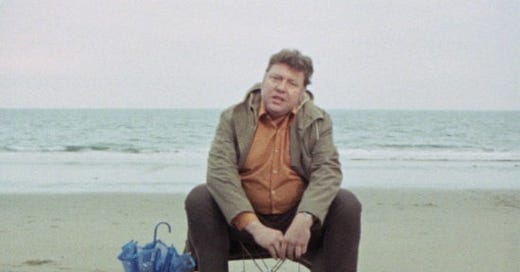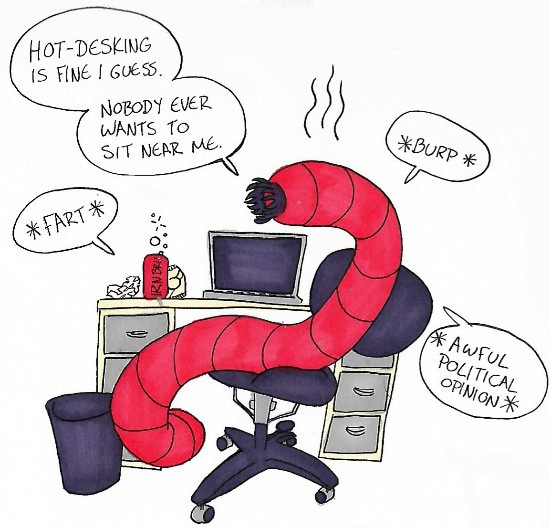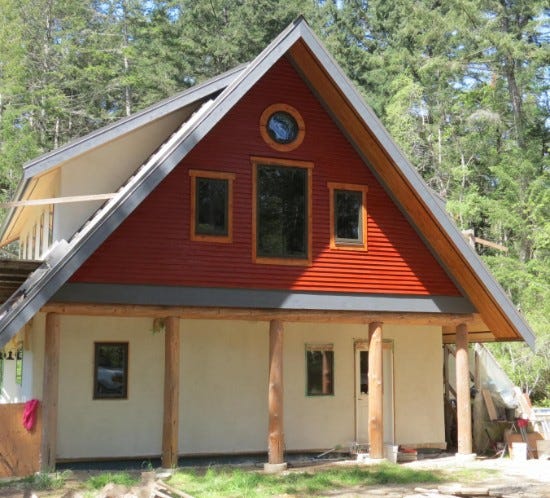New Escapologist : October 2019
Just Get Your Knee Up
Helloington. Robert Wringham here. Welcome to the October edition of the New Escapologist newsletter. These are going well enough, aren't they?
Earlier this month, I witnessed historical moment in London when rubbing shoulders with Extinction Rebellion. I joined a small Idler contingent at Trafalgar Square for Tom Hodgkinson's “Do Less” campaign proximate to the somewhat larger XR disruption. I was over two hours late to all this, which means I win at idling.
The event was quite exciting. I’ve been to lots of protests and marches and Anarchist or Socialist events over the years, but there was a palatable sense here that the protest was a genuine interface with Power, that They might be paying attention. Who knows?
At first, I wasn’t sure I’d be able to climb to the level of the lions on Nelson’s Column, but Tom and Brendan and Flo offered encouragement: “Just get your knee up!” I’ve said it before: the strongest force in the universe is peer pressure. And a week later, I had a right old shiner (a large bruise) on my knee to prove it. A sign of good times.
Flo wrote a funny and more detailed report at the Idler website:
Also present was Robert Wringham, Idler contributor and frugality expert. Robert doled out cheese sandwiches at Nelson’s Column to keep starving editor Tom Hodgkinson from going full anarchist and smashing up a police van. Thankfully he arrived at just the right time for lunch, or we may have been making this report from a prison cell.
We sang "Lie Down And Be Counted" by Neil Innes to the strumming of Tom’s uke. I’ve been suffering from laryngitis and so my deeply-hoarse Larry David (Larynge David?) voice was extremely audible over the others, especially when I routinely came in early on “what are we standing for.”
Impossible Things
These quotes are from Trawl, a 1966 novel by B. S. Johnson, further evidence, if any were needed, that a hatred of dreary employment runs through our literature, it being such a prevalent form of human suffering.
What I made money from [seemed] irrelevant, arbitrary, and I felt it should not be. One thing I did decide, was sure about, was that was that I was not going back to being a bank clerk as I had been in the six months between leaving school and being called up: I could not stand any of the work, the people, the atmosphere. But what I would do I just did not know, and could not think: and I could not even think of anything I would like to be, except the impossible things, like a writer, or a film director, or just rich.
I had gone at fourteen to a school which specialised in turning boys into clerks and accountants, and girls into typists and secretaries: and could therefore keep accounts, type, even do shorthand, though very slowly, and was fitted, even trained and qualified after a style, to be a clerk in some sort of office: which fitting was dismaying to me after my experience at the bank. The point was that such work involved repetition, often quite complex repetition, but nevertheless the same sort of thing day after day after day.
The Prisoner
Kudos to The Economist (and thanks to reader Antonia for bringing this to our attention) for using The Prisoner as the basis for an article about hot-desking!
The hero of the cult British TV show “The Prisoner” wakes up one day in a mysterious village. His possessions have vanished and he is not referred to by his real name but as “number six”. His every attempt at escape is frustrated and each episode ends with a set of iron bars superimposed on his face.
The experience of the prisoner will be wearily familiar to one class of office worker—those who undergo the daily trial of “hot-desking”.
Hot-desking really is awful, isn’t it? As the article points out, the real reason behind it–despite whatever reason a company may cite to make it sound appealing–is to save money in quite an extreme way. Someone, somewhere, has calculated that the “average property cost in the first year for a British office worker is £4,800.”
But what of the human cost of hot-desking? All the fretting over tidying up at the end of a day so that your personal items aren’t binned by the cleaners or impounded as lost property? All the fretting over whether you’ll have a seat in the morning at all or if you’ll end up working on your lap in the kitchen?
Even if you can trust that there’ll be a seat for you somewhere in the building, not knowing what it will look like makes it hard to visualise (and therefore emotionally prepare for) a working day.
The suffering is untold and it can’t be good for a worker’s output either, unless perhaps the company is hoping for some sort of suffering-enhanced foie gras product.
If companies don’t want to pay the real estate cost of a worker’s seated bottom, how about abolishing the need for physical presence and being done with it? Let people work unsupervised at home so that there’s no need for offices at all. As well as saving company money, abolishing offices would put paid to the commute, ending the associated pollution and stress and rising at 6am just to stay employed. Not bad.
Letter to the Editor: 6 Months Away From Escape
Hello Rob,
Escape Everything! has been a much-needed source of reassurance and motivation for me over the past several months. Thank you for creating this book! After I finished it, I immediately started reading again, this time keeping track of my favorite passages.
My husband and I created our Escape Plan about a year ago, and I found the New Escapologist site shortly after that. We are about 6 months away from Escape. We are going to quit our jobs, sell our house, and take an extended road trip.
In Chapter 9 you joke about stating to one’s employer “I just hate work and want to be free” as a reason for wanting to work fewer hours. I had a good laugh and am seriously considering using this line when I resign from my job!
Thank you so very much for sharing your wonderful writing and point of view.
--V
Drawlloween: the "Terrible Workplace Humour" Edition
Happy Halloween! New Escapologist‘s art director Samara has been taking part in drawlloween for the duration of October. The idea is for artists to illustrate a different Halloween concept each day according to prompts set in advance.
As well as following the prompts, Samara’s chosen sub-theme has been “terrible workplace humour,” so we get to see what various Monsters of Horror would look like if they had day jobs.
One prompt, for example, was “Cryptid” and she gave us the Mongolian Death Worm as if it worked in an office:
Samara says:
This is the Mongolian Death Worm, which releases a miasma of poison that kills anything it touches, and also chews loudly and reads its emails out loud to itself.
Check it out and, if you’re on Instagram yourself, do give her some final likes of encouragement.
A House From Scratch
The final house inspection by the Nanaimo Regional District building inspector was on May 3, however it took a couple of more weeks to secure the occupancy permit as we had to replace the glazing in a stair bottom window with tempered glass so the inspector could sleep at night.
I’ve posted about it before (and possibly mentioned it in EE!) but New Escapologist contributor Rob West and his family have been building a house in British Columbia, escaping a stressful life in expensive London and Vancouver.
Well, after five years, they’re finally moving in and it’s a beauty. Look at that circular window! Congrats, Wests.
I missed my Patreon deadline for September because I decided that my essay about tiny houses wasn’t quite up to scratch, so nobody was charged. This is the kind of quality control you can expect from New Escapologist. Will there be an essay at the end of this month? Join us on Patreon to find out.
Thanks again for reading.
Escape beautifully,
Robert Wingham
www.newescapologist.co.uk
www.wringham.co.uk







